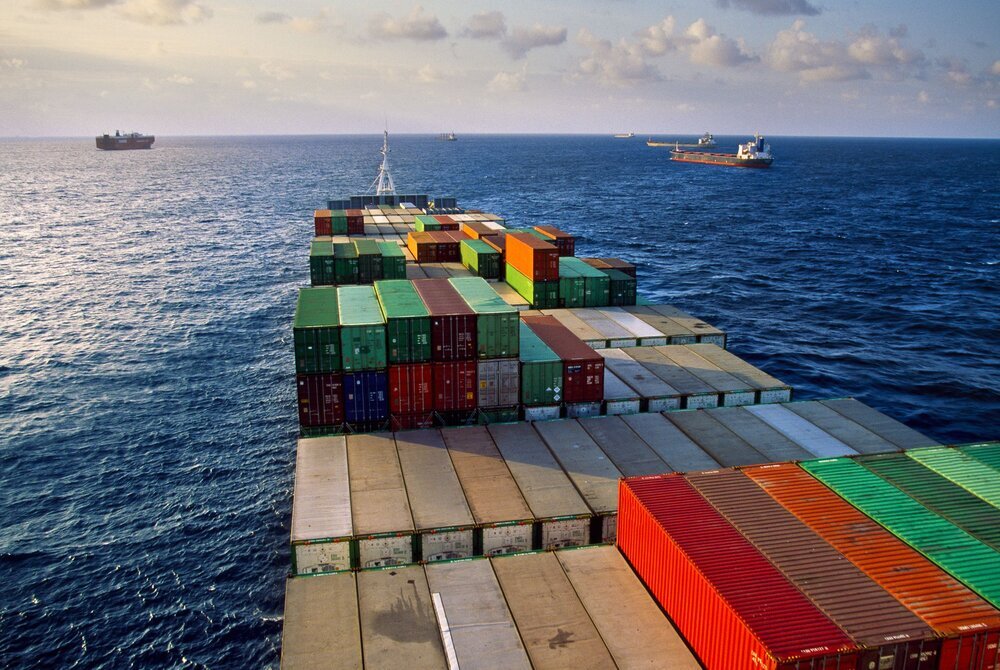
5-month imports of basic goods rise 69% yr/yr

According to Abdolnasser Hemmati the surge was mainly due to the good coordination between the CBI and Iran’s agriculture and trade ministries when it comes earmarking foreign currencies to the importers.
In mid-November last year, CBI issued a directive which obliged the country’s exporters to re-inject their foreign currency incomes into the country’s domestic Forex Management Integrated System (locally known as NIMA) in order to be used to import basic goods.
Hemmati, who visited customs yards at Imam Khomeini Port southwest of Iran earlier in the mentioned day, said current port inventory figures, around three million tons of stocks, were almost double those that existed last year and before the United States imposed its sanctions on Iran.
He said there was no concern about the imports of the basics like animal feeds which are highly needed in Iran's agriculture sector.
Earlier in March, Head of Iran Customs Administration (IRICA) Mehdi Mirashrafi said “Regarding the basic goods, the country is well supplied and even the imports of some commodities like corn and meat have increased.”
The surge in Iran’s import of basic goods come as the country has faced problems in normal trade with traditional partners mainly due to the U.S. sanctions that have restricted businesses’ access to banking services and obtain required guarantees.
In late June, Hemmati announced that the NIMA system has supplied €4.564 billion for imports of basic goods since the beginning of current Iranian calendar year.


Trump weighs using $2 billion in CHIPS Act funding for critical minerals

Codelco cuts 2025 copper forecast after El Teniente mine collapse

Electra converts debt, launches $30M raise to jumpstart stalled cobalt refinery

Barrick’s Reko Diq in line for $410M ADB backing

Abcourt readies Sleeping Giant mill to pour first gold since 2014

Nevada army depot to serve as base for first US strategic minerals stockpile

SQM boosts lithium supply plans as prices flick higher

Viridis unveils 200Mt initial reserve for Brazil rare earth project

Tailings could meet much of US critical mineral demand – study

Kyrgyzstan kicks off underground gold mining at Kumtor

Kyrgyzstan kicks off underground gold mining at Kumtor

KoBold Metals granted lithium exploration rights in Congo

Freeport Indonesia to wrap up Gresik plant repairs by early September

Energy Fuels soars on Vulcan Elements partnership

Northern Dynasty sticks to proposal in battle to lift Pebble mine veto

Giustra-backed mining firm teams up with informal miners in Colombia

Critical Metals signs agreement to supply rare earth to US government-funded facility

China extends rare earth controls to imported material

Galan Lithium proceeds with $13M financing for Argentina project

Kyrgyzstan kicks off underground gold mining at Kumtor

Freeport Indonesia to wrap up Gresik plant repairs by early September

Energy Fuels soars on Vulcan Elements partnership

Northern Dynasty sticks to proposal in battle to lift Pebble mine veto

Giustra-backed mining firm teams up with informal miners in Colombia

Critical Metals signs agreement to supply rare earth to US government-funded facility

China extends rare earth controls to imported material

Galan Lithium proceeds with $13M financing for Argentina project

Silver price touches $39 as market weighs rate cut outlook

















